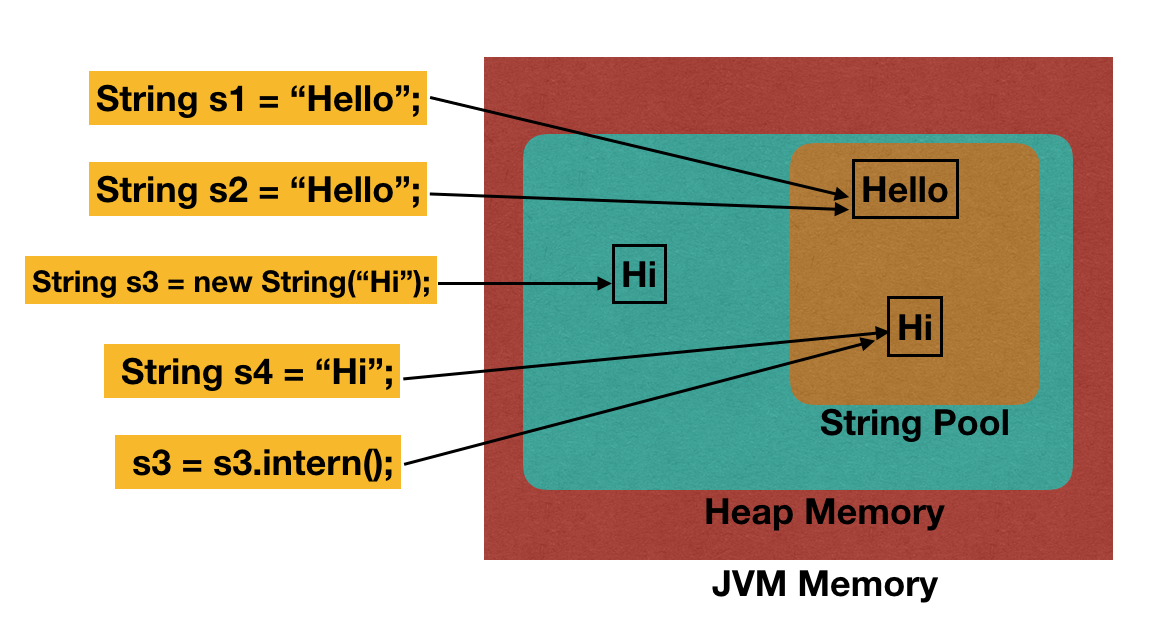Why Are Strings Immutable in Java? Enhancing Code Integrity
Why Are Strings Immutable in Java? Enhancing Code Integrity
Blog Article
Unalterable Strings: A Trick Component in Ensuring Data Uniformity and Dependability
In the realm of information administration, the relevance of immutable strings can not be overstated. These unchanging sequences of personalities play a crucial function in upholding the honesty and precision of information within systems. By maintaining a state of immutability, information uniformity is made sure, cultivating a structure of reliability upon which crucial procedures count. The principle of unalterable strings transcends simple triviality; it is a cornerstone in the facility internet of data governance. As we discover the advantages, application strategies, and functional applications of immutable strings, a more clear picture emerges of their indispensable nature in securing the electronic landscape.
The Idea of Unalterable Strings
Unalterable strings, a fundamental idea in shows, describe strings that can not be changed once they are developed. Essentially, as soon as a string value is assigned, any kind of procedure that appears to modify the string actually produces a brand-new string. This immutability guarantees data consistency and reliability in applications, as it protects against unforeseen changes to the original data.
Advantages in Information Consistency

Data consistency is crucial in different aspects of software advancement, including data source monitoring, multi-threaded atmospheres, and distributed systems (Why are strings immutable in Java?). Immutable strings add substantially to accomplishing this uniformity by avoiding information corruption due to simultaneous access. In situations where multiple procedures or threads communicate with the exact same information at the same time, unalterable strings function as a secure versus race problems and synchronization issues
Furthermore, the immutability of strings simplifies debugging and screening procedures. With immutable strings, programmers can trust that once a string is set, it will stay unchanged, making it easier to map the source of mistakes and making certain that examination situations produce consistent results. This dependability in data handling inevitably results in extra stable and robust applications.

Carrying Out Unalterable Strings
Ensuring the immutability of strings calls for a thoughtful approach to their implementation in software advancement. Once a string things is created, one essential strategy is to develop string courses in a means that prevents adjustments. By making strings unalterable, designers can improve information uniformity and integrity in their applications.
To execute unalterable strings efficiently, developers need to prefer producing new string objects rather than modifying existing ones. This method makes sure that when a string is designated a value, it can not be altered. Additionally, any kind of procedure that appears to customize the string should develop a brand-new string with the preferred adjustments instead of modifying the original.
Moreover, using unalterable strings can streamline concurrency monitoring in multi-threaded environments. Considering that immutable strings content can not be transformed after creation, they can be safely shared among several strings without the threat of information corruption.
Duty in Dependability Guarantee
In software program development, the application of immutable strings plays a vital duty in making certain the integrity of information operations. Unalterable strings, once produced, can not be customized, guaranteeing that the information they represent remains constant throughout the application's execution. This immutability home offers a level of guarantee that the data being refined will certainly not be accidentally changed, bring about unexpected outcomes or errors in the system.
By integrating unalterable strings right into software style, developers can boost the integrity of their try these out applications by decreasing the dangers related to mutable data - Why are strings immutable in Java?. Unalterable strings aid in preventing information corruption or unexpected alterations, which can be especially critical when taking care of sensitive information or when data integrity is paramount
In addition, making use of immutable strings simplifies simultaneous processing, as several threads can safely gain access to and share string information without the risk of one string modifying the content while one more reads it. This facet contributes dramatically to the total reliability of the software application system, making sure regular and predictable actions in data taking care of operations.
Applications and System Assimilation
The seamless combination of immutable strings into numerous applications and systems is essential for making certain durable information consistency and dependability throughout diverse technical environments - Why are strings immutable in Java?. Unalterable strings play a crucial function in boosting the integrity of information exchanges and communications within complex software environments. By including immutable strings into applications, designers can alleviate the dangers connected with data tampering, unapproved adjustments, and unintentional changes, thereby fortifying the overall safety and security pose of the system
In the context of system integration, immutable strings function as a fundamental element for developing safe communication channels and promoting smooth data transfers in between various parts. Their unalterable nature makes certain that information sent between systems continues to be the same and verifiable, reducing the probability of inconsistencies or errors that could endanger the stability of the entire system. Additionally, immutable strings can boost interoperability in between inconsonant systems by supplying a standardized style for data representation, enabling much more reliable data handling and exchange protocols across interconnected systems. By adopting immutable strings in applications and system integration procedures, organizations can strengthen their information facilities and maintain the integrity and uniformity of their information assets.
Verdict
To conclude, immutable strings play a critical function in keeping data uniformity and integrity in various applications and system assimilations. By making sure that strings can not be changed once produced, the integrity of data is maintained, decreasing the risk of my website errors and disparities. Carrying out immutable strings can substantially boost the dependability of systems, inevitably bring about even more accurate and reliable data processing.

Report this page